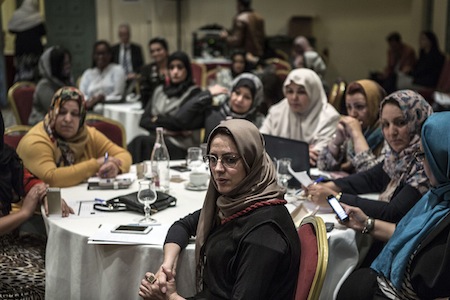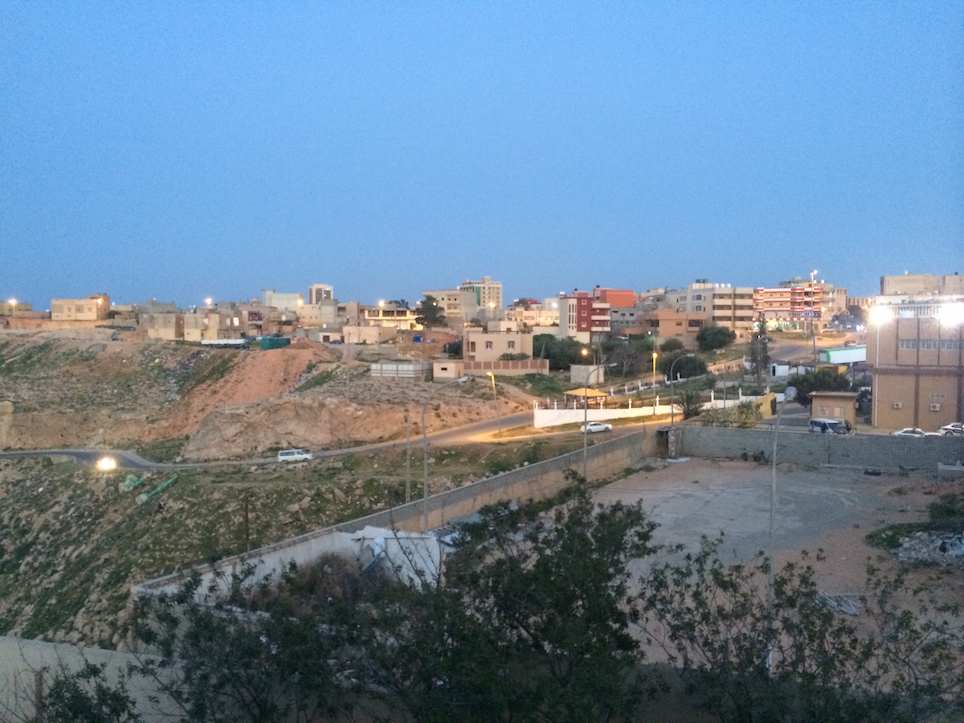By Libya Herald reporter.
Tunis, 21 April 2015:
The Abdullah Thinni government, the only internationally recognized Libyan government, has experienced a near metamorphosis . . .[restrict]in its media output over the last three weeks.
One of the biggest criticisms of the struggling Thinni government – including from this newspaper – has been the paucity of its media output since it was forced to abandon Tripoli in the face of the capital’s invasion by GNC-Libya Dawn militias in July 2014.
Indeed, at the Saturday 4 April Thinni government press conference held at the cabinet office in Al-Beida, the Libyan government admitted that the ‘’enemy’’ it faces has a much superior media machine.
We face ‘‘an enemy that possess a media machine that is much superior to ours’’, the government had complained. ‘‘They have higher skills and capabilities and are backed by huge budgets and international capabilities’’, they had added, complaining that ‘‘the media is able to shape things as it wants’’.
No doubt that forced quick exit to the relatively small eastern city of Al-Beida, without its civil servant and bureaucratic machinery, had left the Thinni government marooned and unable to adequately communicate its message for months.
The transformation in its media output has been a long time coming, and the government has blamed this on the lack of financial and human resources. It has also taken its media output a good eight months to recover from the sudden blow to the head of having being evicted overnight from the capital Tripoli.
However, its recent media transformation can best be seen in its regular press conferences where not only does the Prime Minister address the nation, but equally key ministers taking it in turn to put the government’s message out.
In yesterday’s government press conference, for example, the Deputy Foreign Minister, the Minister of Economy and Industry, the Minister of Justice, the Acting Minister of Defence as well as the Prime Minister all spoke. Video clips of their speeches as well as a text summary were all posted on the government’s official Facebook page.
There is no doubt that quantitatively the media output of the Thinni government has increased. Indeed, even while over in the recent official Moscow visit, the government media team was relatively prolific in its output.
The question of evaluating the qualitatively value of this increased media output is something that can only be judged over a longer period of time and no doubt in relation to the political effect of this output.
Equally, the progress made by the Thinni government in its media output must be judged relatively and put into context. It has had to start from a very low base with very minimal and poor media output since losing its Tripoli-based media machinery of state TV stations, website and army of staff.
It will need and take time for the Thinni government to learn how to fine tune and refine their political message and it remains to be seen if the message is perceived as credible and indeed believable by its audience.
Equally, while the Thinni government may be able to preach its message to its converted audience, wining over the undecided or swing voters, so to speak, will be the bigger challenge.
The government has been a late comer to the media war waged against it with the aide of some super heavy weights in the form of, according to the Libyan government, the Qatari financed Al-Naba TV and Aljazira. Challenging this well-rehearsed media machine is not going to be easy.
Equally, as the saying goes, one swallow does not a summer make, and a few weeks of concerted media output by the Thinni is not going to win over all the neutrals overnight. But it is a start nevertheless, and a step in the right direction towards a professional, relentless media machine that any successful government needs. [/restrict]









